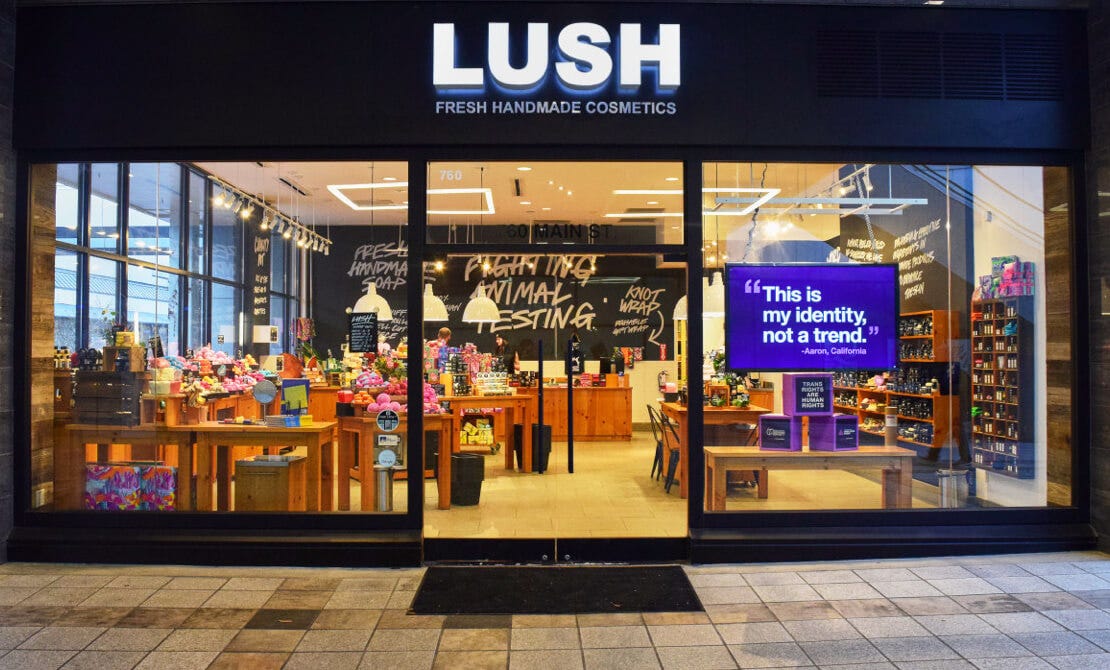Small Markets, Big Wins
From doggie cupcakes to personalised skincare: Tips to niche market success.
Previously on Giuseppe’s Glimpse: In the last episode, drawing from my insightful chat with Frances Frei, we discussed the power of purpose in business and how shifting from profit-only models to value-driven approaches is transforming both business and society. If you missed it, catch it here! 🚀
Buongiorno everyone! 👋
The other day, I was strolling through a street market, peering over displays of fruit, vegetables, cheeses, and baked goodies.
Amidst the sea of familiar products, one booth caught my attention.
Instead of the usual market fare, it proudly showcased an array of beautifully decorated cupcakes... for dogs!
Yes, you heard that right. Canine cupcakes complete with frosting and sprinkles. 🐶🧁
As I watched perplexed pet owners line up to treat their furry friends, I started thinking about how niche markets, like pet patisserie, are booming.
Globalisation and digitalisation have created the perfect conditions for these markets to thrive by connecting diverse audiences worldwide, reducing entry barriers for entrepreneurs, and facilitating personalised interactions.
Through online platforms, niche businesses can target specific consumer preferences, fostering communities of loyal customers with shared interests or values.
So, how can you nail a niche marketing strategy?
Spoiler alert: it's not just about baking doggie cupcakes! 🐾
The elements of a successful niche strategy
First and foremost, acing a niche marketing strategy starts with a well-defined target audience. 🎯
Knowing exactly who you’re targeting allows you to tailor your offerings to meet their specific needs.
Take Lush Cosmetics, for instance. They’ve carved out a niche by focusing on eco-conscious consumers who prefer organic and handmade beauty products.
This precise targeting helps them stand out in a crowded market.
Plus, the more specific your target, the more precise the customisation, the more indispensable you become.
But it's not just about knowing your audience; it's also about establishing yourself as an authority in your niche. 👑
Patagonia, renowned for its sustainable outdoor clothing and gear, is a prime example. Their deep expertise and commitment to sustainability attract a dedicated customer base that trusts their brand.
Now, if you want to connect with your audience, you can’t forget about personalised marketing.
Let’s look at skincare brand Glossier, which uses customer data to send targeted emails and product recommendations based on individual skin types and concerns.
This personalised touch makes customers feel understood and valued, fostering a deeper connection and loyalty to the brand.
And speaking of loyalty, fostering a sense of belonging among your customers can work wonders for your brand. 🫂
Lego has perfected this with the Lego Ideas Initiative. This platform exemplifies co-creation and innovation, fostering community by allowing fans to share ideas, design new products, join contests, and vote on favourites.
Since its 2008 launch, the community has grown to 3 million users, submitted more than 135,000 ideas, and produced over 50 new sets, all fueled by collective creativity and passion.
Lastly, adaptability is key.
Think of Whole Foods Market, constantly evolving its product offerings to align with the ever-changing health and dietary trends within the organic foods community.
By staying ahead of the curve, Whole Foods remains a trusted destination for health-conscious consumers, solidifying their position in the market.
So, success in niche markets isn’t easy—you have to deeply understand your audience and meet their needs seamlessly.
It's like walking a tightrope, but when you strike the right balance, the rewards are totally worth it. ⚖️
Why niche marketing works in today's world
In today’s market landscape, personalised and curated experiences are key to winning over consumers.
As I always say, you have to BE PERSONAL!
People want brands that speak their language and get what matters to them.
That's where niche markets truly shine. ☀️
They offer unique experiences that big names just can’t match, focusing on building a loyal following that values quality and expertise.
Consumers today are more discerning than ever.
By honing in on niche markets, businesses can stand out by offering products and services that hit the spot for their audience.
And hey, it's not just about keeping customers happy—it's about driving long-term success and profitability. 📈
So, what’s your take on niche marketing? Do you see it as a path to deeper customer connections and bigger profits?
Share your thoughts in the comments below!
Stay curious! 🙌
-gs
Oh, wow! You made it to the end. Click here to 👉 SHARE this issue with a friend if you found it valuable.









100% agree: personalisation is key to drive successful campaigns and increase conversions. However, ss much as it is a priority, it is also a challenge: marketers today know that personalization is crucial, but the growing diversity and volume of data sources to reconcile complicate the task. To effectively work on personalizing messages and channels, it is essential to have a data strategy that guides the correct use of data and its effective activation.
Totally agree.
Marketing is essentiall to exploit the potential of a market niche.
However, when you offer a wide assortment where you can meet different niche segments in the same market (eg sport merchandising), is it so easy to find your customers and be recognised as an authority?